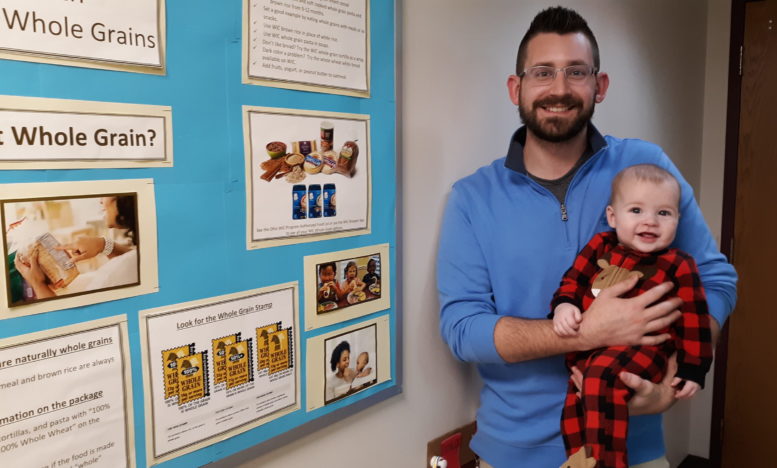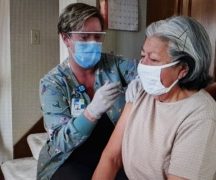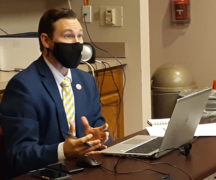By JAN LARSON McLAUGHLIN
BG Independent News
Corey Shepherd is accustomed to skepticism when he tells people about his job. Shepherd is the new director of the Women, Infants and Children nutrition program – though he is not a woman. And he is a lactation specialist – though he, well, you know …
Shepherd is one of three male WIC directors in Ohio.
“Initially, I didn’t want to work in WIC. I really didn’t,” Shepherd said from his office at the Wood County Health Department. As a dietician, he was looking for a career in community nutrition. But he found a WIC position in Findlay.
“Yeah, I thought I’ll do this for a few months. A few months turned into five years,” he said.
And now he is the WIC director for Wood County.
Shepherd found fulfillment in making sure babies are fed and moms are healthy.
“Successes in this job are few and far between. But when they arise, it feels good,” he said. “We help moms provide food for their little ones.”
WIC suffers from people not understanding its purpose, Shepherd said.
“I think some people look at us as a formula program,” he said.
But WIC helps meet the nutritional needs of women while they are pregnant, six months after giving birth, up to a year if they are exclusively breastfeeding, plus for their children up to age 5.
Being a male in the female dominated WIC profession already makes Shepherd stand out. But add the fact that he is a lactation specialist, and he often gets side-eye glances.
“‘Oh, it’s a guy.’ I’ve heard that so many times,” Shepherd said with a smile. “I’ve never let it bother me, I guess.”
To clients who question his ability to consult them on breastfeeding, Shepherd explains it like this – “I’m a dietician. I’ve never had diabetes, but I can teach you how to eat for it,” he said.
He sees it as no different than male obstetricians or gynecologists.
Of course, it does lead to some awkward conversations. Shepherd recalled being back at his childhood home near Gallipolis, Ohio, when a female member of the family asked for his advice on breastfeeding. That was just too much for Shepherd’s father, a pipeline worker.
“He just said, ‘this is weird,’ and left the room. They don’t quite understand it.”
Wood County Health Department’s WIC program sees about 300 families each month. Most are served through the main office in Bowling Green, but satellite clinics in Northwood and North Baltimore also provide services for residents in the northern and southern areas of the county.
“That really helps our clients,” Shepherd said of the satellite clinics.
The WIC staff includes five employees, who can bring their infants to work for their first six months.
The COVID pandemic has led to shifts in the program, with all clients being served curbside. That makes it difficult for staff to assess the health of mothers and their children.
“We are approaching two years of not having anyone in the clinic,” Shepherd said. “We don’t get to observe. You lose all your non-verbal cues. We could possibly be missing underweight kids.”
Several mothers are referred to the WIC program by their physicians, or some through the Help Me Grow program, or Job and Family Services. Shepherd suspects there are far more women, infants and children in the county who would qualify and could benefit from the nutrition program.
“Research shows WIC has helped decrease miscarriages, SIDS, and stillbirths,” he said.





